The NBA trade deadline is in the books. Which teams are winning and losing the biggest deals?
We saw a few major moves go down, namely the James Harden-Ben Simmons swap between the Brooklyn Nets and Philadelphia 76ers, the Dallas Mavericks sending Kristaps Porzingis to the Washington Wizards, the Sacramento Kings landing Domantas Sabonis in a trade with the Indiana Pacers and the New Orleans Pelicans acquiring CJ McCollum from the Portland Trail Blazers.
Prior to those deals, the Cleveland Cavaliers traded for guard Caris LeVert, the LA Clippers and the Trail Blazers teamed up for a five-player swap, the New York Knicks landed Cam Reddish and the Boston Celtics dealt Bol Bol.
Which teams got an "A" and which ones failed?
Keep it here for all latest trade grades and intel on what comes next for every team making moves.
Jump to a trade grade:
Harden-Simmons blockbuster | Wizards land Porzingis
Bucks get Ibaka in 4-team deal | Harrell to Hornets
Celtics acquire White from Spurs | Jazz get Alexander-Walker
Kings land Sabonis | Pels acquire McCollum
LeVert to Cavs | Suns bring back Craig | Covington, Powell to L.A.

DEADLINE DAY GRADES
The Harden-Simmons blockbuster
Brooklyn Nets get: Ben Simmons, Seth Curry, Andre Drummond, 2022 first-round pick (right to defer until 2023), 2027 first-round pick (top-8 protected)
Philadelphia 76ers get: James Harden, Paul Millsap
Nets: B+
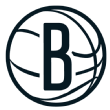 It was 392 days ago the Nets brought Harden to Brooklyn to complete their superteam. In that span, they've gone from championship favorites to second-round exit to not having Irving for the first two months of this season because of New York City's COVID-19 vaccine mandate to a nine-game losing streak to trading Harden.
It was 392 days ago the Nets brought Harden to Brooklyn to complete their superteam. In that span, they've gone from championship favorites to second-round exit to not having Irving for the first two months of this season because of New York City's COVID-19 vaccine mandate to a nine-game losing streak to trading Harden.
Life in the NBA comes at you fast.
In the short term, the Nets' odds of winning a title have decreased -- down to +425 from +400, according to Caesars Sportsbook. If Brooklyn could count on Harden being fully engaged for the postseason, a duo of him and Kevin Durant gave the Nets a realistic path to the championship even if it started in the play-in tournament. Remember, we saw Durant and Harden on a severe hamstring injury nearly take out the eventual champion Milwaukee Bucks last spring with Irving playing no role due to injury in the last three games of that series.
Still, Brooklyn had to acknowledge that being the favorite to win it all this season was no longer realistic, given Irving's ineligibility for home games and Joe Harris' uncertain return from ankle surgery. The Eastern Conference also looks far deeper this season with five non-Nets teams on track for at least 48 wins, compared to three teams at that level including Brooklyn in last year's 72-game season.
That reality surely made it easier to make a trade that lands an All-Star who's seven years younger than Harden, plus a valuable outside shooter in Curry who helps cushion the loss of Harris.
The most fascinating piece of this trade for the Nets is how Simmons will fit.
MORE: Grade for the 76ers

Wizards land Porzingis in surprise move with Mavs
Washington Wizards get: Kristaps Porzingis, Future second-round pick
Dallas Mavericks get: Spencer Dinwiddie, Davis Bertans
Wizards: A-
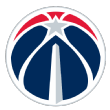 I don't know how well this trade will work for the Wizards, but it's worth trying. As I noted after Bradley Beal's decision to undergo season-ending wrist surgery, there wasn't an obvious path to contention for Washington if he re-signs this summer. Making Porzingis Beal's co-star feels a little dubious, given Dallas found that same setup lacking with a better star guard, but at least it creates some variance that could work in the Wizards' favor.
I don't know how well this trade will work for the Wizards, but it's worth trying. As I noted after Bradley Beal's decision to undergo season-ending wrist surgery, there wasn't an obvious path to contention for Washington if he re-signs this summer. Making Porzingis Beal's co-star feels a little dubious, given Dallas found that same setup lacking with a better star guard, but at least it creates some variance that could work in the Wizards' favor.
Assuming Beal does stay in D.C., Washington will have some interesting lineup options next season. The Wizards are in position to re-sign Beal and center Thomas Bryant and still use at least a portion of their midlevel exception while staying below the tax line. Washington could target a pass-first point guard who's an upgrade on incumbent Raul Neto.
I'm also intrigued by the possibility of the Wizards just making Beal their point guard, which would allow them to put giant lineups on the court. If Porzingis plays power forward, they could use him, center Daniel Gafford and Kyle Kuzma in the frontcourt with Beal and Kentavious Caldwell-Pope at guard. Young forward Deni Avdija also fits into that vision of lineups with three players 6-foot-9 or taller.
MORE: Grade for Mavericks

Bucks get Ibaka in 4-team deal
Milwaukee Bucks get: Serge Ibaka, Two future second-round picks, cash
Sacramento Kings get: Donte DiVincenzo, Trey Lyles, Josh Jackson
LA Clippers get: Rodney Hood, Semi Ojeleye
Detroit Pistons get: Marvin Bagley III
Bucks: C+
 Dealing DiVincenzo before the deadline always seemed like the best option for the Bucks. Not only would re-signing him as a restricted free agent this summer have pushed their tax bill into the stratosphere, he's become somewhat duplicative after the addition of Grayson Allen (who's already extended his contract beyond this season) and the continued emergence of Pat Connaughton (an unrestricted free agent this summer who will command a sizeable raise). There's only so many 6-foot-4 or 6-foot-5 shooting guards one team can play.
Dealing DiVincenzo before the deadline always seemed like the best option for the Bucks. Not only would re-signing him as a restricted free agent this summer have pushed their tax bill into the stratosphere, he's become somewhat duplicative after the addition of Grayson Allen (who's already extended his contract beyond this season) and the continued emergence of Pat Connaughton (an unrestricted free agent this summer who will command a sizeable raise). There's only so many 6-foot-4 or 6-foot-5 shooting guards one team can play.
Beyond that, Milwaukee had a need to upgrade in the frontcourt. This particular construction suggests some level of concern about Brook Lopez's ability to contribute in the playoffs despite recent reports indicating the Bucks expect him to return this season.
Without Lopez, Milwaukee has gotten troublingly small this season -- particularly in contrast to the giant lineups with P.J. Tucker at small forward and Khris Middleton at shooting guard the team started en route to the 2021 title. Middleton has frequently played power forward in second units this season alongside either Giannis Antetokounmpo or Bobby Portis at center.
The question is whether Ibaka is a solution. After all, he's being traded by another playoff team after slipping behind Isaiah Hartenstein to third on the Clippers' depth chart after his own back injury -- which sidelined Ibaka for all but two games in the 2021 postseason -- lingered into the start of this year. Ibaka's production has trended up recently, and if the Bucks get another center who can both protect the rim and stretch the floor (Ibaka has hit 39% of his limited 3s this season, up from 36% career), that's a boon.
MORE: Grades for the Clippers, Pistons and Kings

Hornets acquire Harrell from Wizards
Charlotte Hornets get: Montrezl Harrell
Washington Wizards get: Ish Smith, Vernon Carey Jr., 2023 second-round pick (via Boston)
Hornets: B
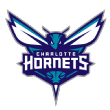 Harrell to the Hornets was one of the most obvious fits out there before the deadline. Charlotte is thin at center, where undersized P.J. Washington has been backing up journeyman starter Mason Plumlee. The Hornets have actually played quite well with Washington at center but get torched any time they don't have one of Plumlee, Washington or starting forward Miles Bridges in the middle. Those lineups have been outscored by 7.4 points per 100 possessions, according to Cleaning the Glass data.
Harrell to the Hornets was one of the most obvious fits out there before the deadline. Charlotte is thin at center, where undersized P.J. Washington has been backing up journeyman starter Mason Plumlee. The Hornets have actually played quite well with Washington at center but get torched any time they don't have one of Plumlee, Washington or starting forward Miles Bridges in the middle. Those lineups have been outscored by 7.4 points per 100 possessions, according to Cleaning the Glass data.
After falling short of expectations during his lone season with the Los Angeles Lakers, Harrell bounced back with the Wizards. He's posting a career-high .684 true shooting percentage, dramatically better than when he won Sixth Man of the Year two years ago with the LA Clippers. Harrell will never be a strong rim protector and won't help Charlotte's 24th-ranked defense, but he makes an offense just outside the NBA's top 10 on a per-possession basis that much stronger. LaMelo Ball will surely love throwing him lobs.
Adding Harrell should allow Bridges and Washington to play more minutes at forward, useful with Gordon Hayward currently sidelined by an ankle sprain. And the price (the Celtics' 2023 second-rounder, top-45 protected) was reasonable. Losing Smith does affect the Hornets' depth at point guard; they'll probably want to use the roster spot this trade creates to add there.
Wizards: B
 Presumably, part of the Wizards' willingness to move Harrell without getting a premium pick in return was a product of their sudden void at point guard after trading Spencer Dinwiddie to the Dallas Mavericks as part of Thursday's deal for Kristaps Porzingis. Enter Smith, who returns to Washington after a half-season in his hometown. (Harrell, too, is a North Carolina native.)
Presumably, part of the Wizards' willingness to move Harrell without getting a premium pick in return was a product of their sudden void at point guard after trading Spencer Dinwiddie to the Dallas Mavericks as part of Thursday's deal for Kristaps Porzingis. Enter Smith, who returns to Washington after a half-season in his hometown. (Harrell, too, is a North Carolina native.)
The Wizards know what they're getting with a combo of Smith and Raul Neto at point guard, which they also utilized last season. This summer, Washington will have a choice between keeping Smith at his $4.7 million salary or waiving him before it guarantees on July 1. The Wizards will be stuck with a guaranteed $1.8 million 2022-23 salary for Carey, who has played sparingly (just 17 minutes this season) since being drafted with the second pick of the second round by Charlotte out of nearby Duke.

Suns bring back Craig
Phoenix Suns get: Torrey Craig
Indiana Pacers get: Jalen Smith, Future second-round pick
Suns: A-
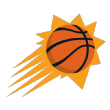 After Craig averaged 12 MPG off the bench during last season's run to the NBA Finals, the Suns found themselves missing him this season. So, with the Pacers headed toward the draft lottery, they were able to bring him back at the deadline.
After Craig averaged 12 MPG off the bench during last season's run to the NBA Finals, the Suns found themselves missing him this season. So, with the Pacers headed toward the draft lottery, they were able to bring him back at the deadline.
Craig had started 14 games and averaged a career-high 20.3 MPG in Indiana. His role will likely be smaller in Phoenix because the Suns are already flush at forward with starters Mikal Bridges and Jae Crowder and reserve Cam Johnson, but there's a place for Craig in the rotation to defend physical combo forwards when Bridges and Crowder are resting.
Some 16 months after Phoenix drafted Smith 10th overall, he didn't figure into the team's long-term plans after having his third-year option declined. Smith has played more this season, and there was briefly concern the Suns wouldn't be able to re-sign him this summer after a six-game stretch where he averaged 15.8 PPG and 10.2 RPG, but he has since been usurped in the rotation by journeyman center Bismack Biyombo.
One small but telling aspect of this deal is Phoenix's willingness to take on Craig's guaranteed salary for 2022-23, when the Suns are just $14 million below the luxury tax line before re-signing restricted free agent Deandre Ayton. It's good news that didn't affect Phoenix's ability to add at the deadline. Alternatively, if the Suns are desperate to cut their tax bill over the summer, Craig will surely have value to another team.
Pacers: B+
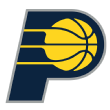 Although Craig had played well, he didn't factor into the Pacers' long-term plans at age 31. Getting some value in return is the right move, especially now that Indiana looks likely to use cap space this summer. The Pacers will also get the rest of the season to look at Smith, though -- like the Suns -- they'll be limited to paying him the value of his declined option ($4.7 million) as an unrestricted free agent this summer.
Although Craig had played well, he didn't factor into the Pacers' long-term plans at age 31. Getting some value in return is the right move, especially now that Indiana looks likely to use cap space this summer. The Pacers will also get the rest of the season to look at Smith, though -- like the Suns -- they'll be limited to paying him the value of his declined option ($4.7 million) as an unrestricted free agent this summer.

Celtics acquire White from Spurs
Boston Celtics get: Derrick White
San Antonio Spurs get: Josh Richardson, Romeo Langford, 2022 first-round pick (top-4 protected), swap rights on 2028 first-round pick
Celtics: B+
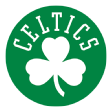 Because of the higher-profile deals before the deadline, the Celtics adding White is likely to fly under the radar. Over the long term, it could be an impact move for a Boston team that quietly sports the Eastern Conference's best point differential at plus-4.7 points per game and is just 4.5 games (albeit six spots) out of first place.
Because of the higher-profile deals before the deadline, the Celtics adding White is likely to fly under the radar. Over the long term, it could be an impact move for a Boston team that quietly sports the Eastern Conference's best point differential at plus-4.7 points per game and is just 4.5 games (albeit six spots) out of first place.
If you're going to give up a first-round pick and swap rights in a trade, it better be for a player in his prime on a favorable contract. White counts: At 27, he should hold most of his value during the remainder of a contract that pays him an average of $17.6 million over the next three seasons.
In terms of box-score stats, White has rated out as an average starting guard. On-off data suggests his value could be even greater. Based on three-year regularized adjusted plus-minus (RAPM) from NBAshotcharts.com, White's impact on the Spurs has ranked just outside the league's top 40 players in that span.
Granting that on/off impact doesn't always travel with a player to a new team and a new role, I like White's fit in Boston. The Celtics can use his playmaking alongside their stars. White is averaging a career-high 5.6 assists per game this season. He's another plus defender on a team full of them on the perimeter and can share ballhandling duties with Marcus Smart.
The only question mark is shooting. After hitting 39% of his spot-up 3s in 2019-20 and 37% last season, per Second Spectrum tracking on NBA Advanced Stats, White has dipped to 32% so far this season. At that rate, teams will probably feel comfortable helping off him in a playoff series.
For a Boston team that has struggled any time its starters haven't been on the court together, White immediately strengthens the bench and can be a part of the Celtics' core group long-term. Boston is giving up a pick that's likely to fall in the late teens or early 20s (it would be 18th if the season ended today), as well as swap rights down the road, so there is risk here. I think it's worth taking.
Spurs: B
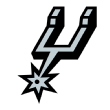 White was to some degree expendable because of the Spurs' logjam on the wing. Devin Vassell, their 2020 lottery pick, looks ready to move into a larger role, while San Antonio also has recent first-round picks Keldon Johnson as a starter and Lonnie Walker IV as a reserve.
White was to some degree expendable because of the Spurs' logjam on the wing. Devin Vassell, their 2020 lottery pick, looks ready to move into a larger role, while San Antonio also has recent first-round picks Keldon Johnson as a starter and Lonnie Walker IV as a reserve.
To that group, the Spurs add Langford, who's worth a longer look than he got in Boston. Langford has flashed decent feel and defensive potential in limited run with the Celtics but couldn't put it all together well enough to maintain a consistent role in the rotation. He's got one year remaining on his rookie contract after this season for San Antonio to evaluate him.
Given the Spurs have still drafted well in recent years while their evaluation of veteran players has been more hit and miss, adding another first-round pick this year should help down the road.

Raptors trade Dragic to Spurs
Toronto Raptors get: Thaddeus Young, Drew Eubanks, 2022 second-round pick (via Pistons)
San Antonio Spurs get: Goran Dragic, future first-round pick (top-14 protected in 2022, top-13 in 2023; then converts to two second-round picks)
Raptors: C+
 The Raptors adding depth using Dragic's $19.4 million expiring contract was one of the few certainties of deadline day. Toronto's five starters are all averaging at least 34.8 MPG, with Fred VanVleet (38.6), Pascal Siakam (37.9) and OG Anunoby (37.2) the top three players in the league. The cost for the Raptors adding to that group ended up being somewhat higher than expected.
The Raptors adding depth using Dragic's $19.4 million expiring contract was one of the few certainties of deadline day. Toronto's five starters are all averaging at least 34.8 MPG, with Fred VanVleet (38.6), Pascal Siakam (37.9) and OG Anunoby (37.2) the top three players in the league. The cost for the Raptors adding to that group ended up being somewhat higher than expected.
I like the move to get Young, whose defensive versatility should fit into Toronto's aggressive scheme. Because the Spurs were rebuilding, they've barely played the 33-year-old Young, who was one of the league's best reserves in 2020-21 with the Chicago Bulls. Young's playmaking from the high post (he averaged 4.3 APG last season) is also a good fit for the equal-opportunity Raptors offense.
Using a construction we rarely see, Toronto basically split the difference between its first-round pick and second-rounder. If the Raptors make the playoffs, they're likely to send San Antonio a pick in the late teens or early 20s (it would be No. 20 if the season ended today). Toronto will get back the Pistons' second-round pick, which should fall in the early 30s (it would be No. 31).
The difference between those two, according to my pick value chart, is about the same as the 27th pick, making this roughly equivalent to a championship contender sending the Spurs its first-rounder.
For the Raptors, that cost would make more sense if they added multiple players to the bench. Instead, ESPN's Adrian Wojnarowski reported they'll waive Eubanks, who doesn't really fit their defensive scheme.
Toronto does save about $3 million with this trade, enough to replace Eubanks with a player making more than the veterans minimum and stay out of the tax. The Raptors could outbid other suitors on the buyout market using the remainder of their midlevel exception. We'll see whom they land to fill out the second unit.
Spurs: A
 The Spurs never had any plans for Young, acquired as matching salary as part of the sign-and-trade that sent DeMar DeRozan to Chicago. They'll be thrilled to pick up a first-round pick as additional return for DeRozan. ESPN's Tim Bontemps reported San Antonio plans to buy out Dragic, who will become an attractive free agent. The Spurs then used the roster spot created by including Eubanks in the deal to complete a 2-for-1 trade with the Celtics later Thursday.
The Spurs never had any plans for Young, acquired as matching salary as part of the sign-and-trade that sent DeMar DeRozan to Chicago. They'll be thrilled to pick up a first-round pick as additional return for DeRozan. ESPN's Tim Bontemps reported San Antonio plans to buy out Dragic, who will become an attractive free agent. The Spurs then used the roster spot created by including Eubanks in the deal to complete a 2-for-1 trade with the Celtics later Thursday.

Rockets get Schroder from Celtics
Boston Celtics get: Daniel Theis
Houston Rockets get: Dennis Schroder, Enes Freedom, Bruno Fernando
Celtics: D
 The Celtics can't quit Daniel Theis. A little less than a year after sending Theis to the Chicago Bulls at the trade deadline to stay out of the luxury tax, they brought Theis back in a deal Thursday. In between, Theis' value diminished because of a new contract he signed with the Rockets. Theis will make nearly $18 million over the next two seasons before a team option in 2024-25 and had been out of the Rockets' rotation after proving an ineffective fit next to Christian Wood.
The Celtics can't quit Daniel Theis. A little less than a year after sending Theis to the Chicago Bulls at the trade deadline to stay out of the luxury tax, they brought Theis back in a deal Thursday. In between, Theis' value diminished because of a new contract he signed with the Rockets. Theis will make nearly $18 million over the next two seasons before a team option in 2024-25 and had been out of the Rockets' rotation after proving an ineffective fit next to Christian Wood.
Theis is shooting a career-low 53% on 2-point attempts (he shot 60% on them as a member of the Celtics) and his assist rate has dropped by half. I understand the sentiment that Boston can get more out of Theis, but age is a factor, too. Theis didn't come to the NBA until age 25 and will be 30 by the end of this season.
Given his reliance on athleticism to be a plus defender as a 6-foot-8 center, Theis might struggle in his 30s. The Celtics seemed to let Houston off easy in taking on the two remaining years of Theis' contract without sending back any long-term salary in return. By sending Fernando and Freedom to the Rockets, Boston did clear roster spots and likely avoids going into the luxury tax.
The Celtics are taking some risk of paying the tax if they advance deep into the playoffs and Jaylen Brown hits incentives in his contract by playing at least 65 games. They also currently project over the 2022-23 tax line. I don't think bringing back Theis was worth that kind of expenditure.
Rockets: A-
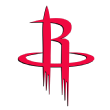 As thrilled as the Rockets have to be to get a mulligan on Theis' contract, taking back three players for one does create some issues.
As thrilled as the Rockets have to be to get a mulligan on Theis' contract, taking back three players for one does create some issues.
Houston had to release two players to make room, and one of them will be useful guard Armoni Brooks, according to the Houston Chronicle. Brooks could be a candidate to be claimed off waivers before the Rockets could bring him back.
Schroder also doesn't seem to fit a rebuilding Houston team and might end up being bought out.

Celtics deal Bol to Magic
Boston Celtics get: Future second-round pick
Orlando Magic get: P.J. Dozier, Bol Bol, future second-round pick, cash
Celtics: B
 This was the day's only pure salary dump, necessitated by the salary the Celtics were adding in other deals. Bol and Dozier are both injured, and trading them allows Boston to fill those roster spots without likely going into the luxury tax.
This was the day's only pure salary dump, necessitated by the salary the Celtics were adding in other deals. Bol and Dozier are both injured, and trading them allows Boston to fill those roster spots without likely going into the luxury tax.
Magic: B
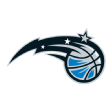 The only drama from this trade was how the Magic might create the necessary room on the roster. They waived Michael Carter-Williams and E'Twaun Moore, neither of whom has played this season due to their own injuries. Orlando then waived Dozier too but will apparently hang on to Bol, who will be a restricted free agent this summer.
The only drama from this trade was how the Magic might create the necessary room on the roster. They waived Michael Carter-Williams and E'Twaun Moore, neither of whom has played this season due to their own injuries. Orlando then waived Dozier too but will apparently hang on to Bol, who will be a restricted free agent this summer.

PREVIOUS TRADE GRADES
Feb. 9: Jazz acquire Alexander-Walker in 3-team deal
Utah Jazz get: Nickeil Alexander-Walker, Juancho Hernangomez
San Antonio Spurs get: Tomas Satoransky, 2022 second-round pick (via Memphis)
Portland Trail Blazers get: Joe Ingles, Elijah Hughes, 2027 second-round pick
Jazz: C
 You can see the logic here for the Jazz, who have struggled to develop useful young perimeter players since drafting Donovan Mitchell -- a shortcoming exposed by Ingles' season-ending ACL injury. That's left Jordan Clarkson as Utah's only reliable perimeter reserve.
You can see the logic here for the Jazz, who have struggled to develop useful young perimeter players since drafting Donovan Mitchell -- a shortcoming exposed by Ingles' season-ending ACL injury. That's left Jordan Clarkson as Utah's only reliable perimeter reserve.
Compared with the second-rounders and undrafted free agents Utah has in the pipeline, Alexander-Walker has far more pedigree. I had him 13th in my subjective rankings for the 2019 draft, four spots higher than he actually was taken by the New Orleans Pelicans. At 6-foot-6, Alexander-Walker has enough size to defend multiple guard spots, can handle a little and shoot it.
Through two-plus seasons, however, Alexander-Walker has failed to deliver on that potential. Instead of the do-everything guard we saw at Virginia Tech, he's been a shoot-everything player in the NBA, sporting usage rates up to this season's 25%. That's taken a toll on his true shooting percentage, which has fallen below the NBA's equivalent of the Mendoza line (50%) two of his three seasons.
Perhaps Utah can help Alexander-Walker take the same development step Clarkson has in the Wasatch Front. Clarkson's first three seasons were similar to Alexander-Walker's, albeit somewhat more efficient. Still, it seems unlikely that transformation will happen in time for this year's playoffs. It's probably too late to count on Hernangomez, who has bounced around teams since a promising start to his career with the Denver Nuggets, to fill that role, which could leave the Jazz a man short.
This deal saves the Jazz about $11 million in luxury taxes, creates a sizable trade exception ($9.8 million, per ESPN's Bobby Marks) and leaves Utah the ability to trade a first-round pick down the road. But unless there's another move coming in the next 24 hours, it doesn't seem like the kind of difference-making deal we were expecting the Jazz to make using Ingles' expiring contract.
Trail Blazers: B
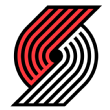 Less than 24 hours after being dealt to the Blazers, Alexander-Walker and Satoransky are being rerouted elsewhere. As Marks explained, that's possible because they're being traded separately rather than having their salaries aggregated together. Satoransky for Ingles is more or less a wash, with both players on expiring contracts and Portland now miles from the luxury tax.
Less than 24 hours after being dealt to the Blazers, Alexander-Walker and Satoransky are being rerouted elsewhere. As Marks explained, that's possible because they're being traded separately rather than having their salaries aggregated together. Satoransky for Ingles is more or less a wash, with both players on expiring contracts and Portland now miles from the luxury tax.
Giving up Alexander-Walker doesn't quite fit with the Blazers' developmental focus the rest of this season, but it would be understandable if the front office doesn't believe in his potential. Instead, Portland gets a second-round pick and Hughes, who should see more minutes the rest of the season than in his NBA career to date (176 total).
Spurs: A
 Presumably, the Spurs were recruited to join this trade strictly for tax purposes. Hernangomez makes $3 million less than Satoransky, yielding considerable savings for Utah. The difference doesn't matter much to the Spurs, who will collect a second-round pick for their troubles. I wouldn't be surprised to see Satoransky waived immediately so San Antonio can use the roster spot to make another trade that provides tax relief between now and the deadline.
Presumably, the Spurs were recruited to join this trade strictly for tax purposes. Hernangomez makes $3 million less than Satoransky, yielding considerable savings for Utah. The difference doesn't matter much to the Spurs, who will collect a second-round pick for their troubles. I wouldn't be surprised to see Satoransky waived immediately so San Antonio can use the roster spot to make another trade that provides tax relief between now and the deadline.

Feb. 9: Heat deal Okpala to Thunder for a pick
Miami Heat get: 2026 second-round pick
Oklahoma City Thunder get: KZ Okpala
Heat: B
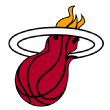 The Heat's casual announcement of this trade buries the lead. The real story here is Miami and Oklahoma City agreeing to amend the protections on a future pick owed by the Heat. Instead of Miami sending a lottery-protected pick in 2023 (via the LA Clippers, who sent it to the Thunder in the Paul George trade), the sides agreed to push it back to 2025.
The Heat's casual announcement of this trade buries the lead. The real story here is Miami and Oklahoma City agreeing to amend the protections on a future pick owed by the Heat. Instead of Miami sending a lottery-protected pick in 2023 (via the LA Clippers, who sent it to the Thunder in the Paul George trade), the sides agreed to push it back to 2025.
In practical terms, that means the Heat can now trade this year's first-round pick -- subject to the Houston Rockets' right to swap it for one from the Brooklyn Nets, which wouldn't currently happen -- or their 2023 first-rounder, previously off-limits to trades. It will be interesting to see whether Miami has something lined up for one of those picks over the next 24 hours.
As for Okpala, taken with the second pick of the second round in 2019, he's the rare player who hasn't thrived in the Heat's development system. Despite a good combination of size and athleticism, Okpala has played just 717 minutes total in two-plus NBA seasons. Just when he seemed to be gaining a foothold in the Miami rotation in December, Okpala suffered a wrist sprain that has sidelined him all of 2022 to date.
For the Heat, dealing Okpala is surely about creating enough room below the luxury-tax line to fill the two roster spots they now have open. Expect Miami to convert the two-way contract of Caleb Martin, who has been a find this season, making him eligible for the playoffs. The other spot will presumably go to a buyout candidate after the deadline.
Thunder: A
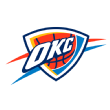 With a free roster spot (technically, they'll have to waive Mamadi Diakite a day before his 10-day contract expires) and a team salary significantly below the salary-cap floor, the Thunder could be busy between now and the deadline taking on contracts from other teams. We'll see whether Oklahoma City actually hangs on to Okpala, who's still just 22 and would be a restricted free agent at season's end.
With a free roster spot (technically, they'll have to waive Mamadi Diakite a day before his 10-day contract expires) and a team salary significantly below the salary-cap floor, the Thunder could be busy between now and the deadline taking on contracts from other teams. We'll see whether Oklahoma City actually hangs on to Okpala, who's still just 22 and would be a restricted free agent at season's end.
Based on the fact that the Thunder are sending a second-round pick -- admittedly a distant one that's unlikely to be particularly valuable -- they clearly preferred pushing the Heat pick back two years, which accomplishes two things:
First, it better spaces out Oklahoma City's incoming first-round picks. The Thunder were set to have up to four first-round picks in 2023, when they're owed lottery-protected picks from the Denver Nuggets and Washington Wizards as well.
Second, the pick now has a lot more upside. Barring substantial injuries, Miami should still be an Eastern Conference contender in 2023, likely to send Oklahoma City a pick in the 20s. By 2025, Heat star Jimmy Butler will be 35, and who knows how good the team might be? Miami now has only one year of lottery protection on the deal before it becomes unprotected in 2026, as opposed to three years in which the Heat would have had to miss the playoffs based on the original protection.
In a classic case of the organization's "before-sight," playing the long game could benefit Oklahoma City tremendously.

Feb. 8: Kings land an All-Star, deal for Pacers' Sabonis
Indiana Pacers get: Tyrese Haliburton, Buddy Hield, Tristan Thompson
Sacramento Kings get: Domantas Sabonis, Jeremy Lamb, Justin Holiday, 2027 second-round pick
Pacers: A
 In the lead-up to the trade deadline, I quoted one of Billy Beane's five rules for trading, as recorded by Michael Lewis in the book "Moneyball":
In the lead-up to the trade deadline, I quoted one of Billy Beane's five rules for trading, as recorded by Michael Lewis in the book "Moneyball":
"The day you say, 'I have to do something,' you're in trouble. Because you are going to make a bad deal. You can always recover from the player you didn't sign. You may never recover from the player you signed at the wrong price."
Because of their 15-year playoff drought, tied for the longest in NBA history, the Kings felt they had to make a move before the Thursday trade deadline. It cost them Haliburton. Sacramento has been in the NBA's wilderness so long because of a series of shortsighted moves designed to get back to the playoffs. Instead of learning from those mistakes (or Beane, just down I-80 in Oakland), the Kings continue to repeat them.
To be clear, Sacramento got a very good player in Sabonis, who is performing at an even higher level this season than he did as an All-Star pick each of the last two. He easily could have been chosen to the Eastern Conference roster. Sabonis is also on a team-friendly contract extension signed before he emerged as an All-Star that has an $18.5 million base salary this year and next before increasing to $19.4 million in 2023-24, the final season of the deal.
At 25, Sabonis is just coming into his prime and should continue to perform at this level through the remainder of his contract and beyond. Still, this is undoubtedly a win-now move for the Kings. After all, Sabonis is four years older than Haliburton. And although Sabonis' contract is favorable, Haliburton might just have one of the very best in the NBA. Because he dropped to the late lottery, Haliburton will make just $10 million combined over the two remaining seasons of his rookie contract before being eligible for an extension.
There's also the question of fit. The Pacers struggled for years with how to pair Sabonis and starting center Myles Turner before finally breaking the duo up this season. (When, admittedly, Indiana actually played by far its best basketball with both Sabonis and Turner on the court.) Now, Sabonis is heading to a Sacramento team that just re-signed a quality starting center (Richaun Holmes) to a four-year contract. Unlike Turner, Holmes isn't a floor spacer, creating bigger offensive issues to go along with the challenges of Sabonis trying to chase quicker players on the perimeter.
MORE: Grade for the Kings

Feb. 8: Pelicans add McCollum for postseason push
New Orleans Pelicans get: CJ McCollum, Larry Nance Jr., Tony Snell
Portland Trail Blazers get: Josh Hart, Tomas Satoransky, Nickeil Alexander-Walker, Didi Louzada, 2022 protected first-round pick, two second-round picks
Pelicans: C-
 Dealing for McCollum is an acknowledgement that the Pelicans' plan to build their backcourt around recent first-round picks Alexander-Walker and Kira Lewis Jr. was a failure. In fairness, Lewis' season was cut short by an ACL tear, but Alexander-Walker had taken a step backward in his development during his third season, and Devonte' Graham hasn't proved to be an equal replacement for Lonzo Ball, who was traded to the Chicago Bulls last summer.
Dealing for McCollum is an acknowledgement that the Pelicans' plan to build their backcourt around recent first-round picks Alexander-Walker and Kira Lewis Jr. was a failure. In fairness, Lewis' season was cut short by an ACL tear, but Alexander-Walker had taken a step backward in his development during his third season, and Devonte' Graham hasn't proved to be an equal replacement for Lonzo Ball, who was traded to the Chicago Bulls last summer.
Enter McCollum, who should upgrade the position considerably. Even during a down season by his standards, McCollum is still creating shots at high volume (26% usage rate) with efficiency in the ballpark of league average (.532 true shooting percentage, a dramatic improvement over Alexander-Walker's .474 mark). McCollum is also a far better distributor, allowing him to serve as lead ball handler in the half court when he teams with Graham.
McCollum's addition should particularly help keep New Orleans afloat when Ingram is off the court. An above-average offense in Ingram's minutes, the Pelicans sink near the bottom of the league without him. Per Cleaning the Glass data, Pelican lineups without Ingram rank in the 11th percentile leaguewide in offensive rating. Staggering Ingram and McCollum should prevent things from getting that bad.
MORE: Grade for the Trail Blazers

Feb. 6: Cavs acquire LeVert in deal with Pacers
Cleveland Cavaliers get: Caris LeVert, 2022 second-round pick (via Miami)
Indiana Pacers get: Ricky Rubio, 2022 first-round pick (lottery-protected), 2022 second-round pick (via Houston), 2027 second-round pick (via Utah)
Cavaliers: C
 Of the guards likely to change teams between now and Thursday's trade deadline, there's a compelling case that LeVert is the best fit for the Cavaliers. Although Cleveland could stand to upgrade behind Garland with Rubio injured, Rajon Rondo has played reasonably well, and the Cavaliers have gotten good minutes recently from Brandon Goodwin, who's on a two-way contract. With Sexton's long-term future in Cleveland uncertain and no ability to play Rubio with Garland, shooting guard was a bigger need.
Of the guards likely to change teams between now and Thursday's trade deadline, there's a compelling case that LeVert is the best fit for the Cavaliers. Although Cleveland could stand to upgrade behind Garland with Rubio injured, Rajon Rondo has played reasonably well, and the Cavaliers have gotten good minutes recently from Brandon Goodwin, who's on a two-way contract. With Sexton's long-term future in Cleveland uncertain and no ability to play Rubio with Garland, shooting guard was a bigger need.
Looking at shooting guards, LeVert was likely the youngest realistic option for the Cavaliers. (Donte DiVincenzo, 25, would make sense but seems unlikely to be moved by the defending champion Milwaukee Bucks unless they can get another rotation player in return.) Popular target Eric Gordon is 33, and Norman Powell, dealt from the Portland Trail Blazers to the LA Clippers Friday, is a year older than LeVert.
Although Cleveland has a real chance of making noise in this year's Eastern Conference playoffs, boasting the conference's best point differential at plus-4.3 points per game, the Cavaliers also need to keep their eye on the long-term picture. Their three core players (Garland, center Jarrett Allen and rookie Evan Mobley) are all 23 or younger, so a player in his 30s like Gordon didn't fit the timeline.
LeVert's playmaking ability also looks useful for Cleveland. He can serve as lead ball handler at times, taking advantage of Garland's ability to be a catch-and-shoot threat like Garland-Rubio lineups did. Scoring on drives has been a weakness for the Cavaliers but a strength of LeVert's game.
MORE: Grade for the Pacers

Feb. 4: Clippers get Covington, Powell in five-player deal
LA Clippers get: Norman Powell, Robert Covington
Portland Trail Blazers get: Eric Bledsoe, Justise Winslow, Keon Johnson, 2025 second-round pick (via Detroit)
Trail Blazers: B-
 For a brief stretch, it looked like the Blazers might play well enough to make bringing Damian Lillard back for a playoff push reasonable. They won six out of nine games between Jan. 9 and Jan. 23, getting strong contributions from Anfernee Simons, Covington and Nassir Little. Notably, that stretch didn't include Powell, who missed five of those games in the NBA's health and safety protocols and four because of personal reasons.
For a brief stretch, it looked like the Blazers might play well enough to make bringing Damian Lillard back for a playoff push reasonable. They won six out of nine games between Jan. 9 and Jan. 23, getting strong contributions from Anfernee Simons, Covington and Nassir Little. Notably, that stretch didn't include Powell, who missed five of those games in the NBA's health and safety protocols and four because of personal reasons.
Powell's return coincided with Little's season-ending injury, putting him back in the lineup at small forward. As well as Portland played defensively last season after adding Powell to the starting five, that didn't carry over this season, when the lack of size with a trio of perimeter players 6-foot-3 and under was difficult to overcome. Without Little, the Blazers have struggled too badly to imagine even Lillard's return could lift them any further than a brief first-round exit.
As a result, trading Covington was a fairly easy call for Portland. With an expiring contract, he held value to contenders, albeit not nearly as much as when the Blazers gave up a pair of first-round picks to get him with two full seasons left on his contract in November 2020. The more interesting elements of this trade from Portland's perspective are moving on from Powell and getting a recent first-round pick (Johnson) rather than a future one.
MORE: Grade for the Clippers

Jan. 19: Denver trades Bol to Boston
Boston Celtics get: P.J. Dozier, Bol Bol
Denver Nuggets get: Bryn Forbes
San Antonio Spurs get: Juancho Hernangomez, 2028 second-round pick (via Denver; top-33 protected), $2.35 million cash
Nuggets: A-
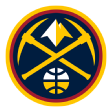 The Nuggets' attempt to move Bol for value to the Pistons earlier this month backfired when he failed his physical in Detroit. Not only did that prevent the Nuggets from getting a second-round pick (albeit a late one) and a player at a position of need (wing Rodney McGruder) in return, it led to Bol opting to undergo right foot surgery on Tuesday.
The Nuggets' attempt to move Bol for value to the Pistons earlier this month backfired when he failed his physical in Detroit. Not only did that prevent the Nuggets from getting a second-round pick (albeit a late one) and a player at a position of need (wing Rodney McGruder) in return, it led to Bol opting to undergo right foot surgery on Tuesday.
Bol's surgery made him the fifth Denver player sidelined long term, joining Dozier (ACL tear), starters Jamal Murray (working his way back from a 2021 ACL tear) and Michael Porter Jr. (back surgery) and reserve forward Vlatko Cancar (surgery on a fifth metatarsal fracture in his right foot). Even for a team as deep as the Nuggets, that cascade of injuries has been difficult to overcome.
Denver could've muddled through, adding players on hardship contracts, but Forbes is surely a better option than any available in free agency now. He is a year removed from averaging 19 minutes per game off the bench for the eventual champion Milwaukee Bucks and gives the Nuggets a shooting dimension they lack with his 41% career mark from 3-point range.
MORE: Grades for the Celtics and Spurs

Dec. 31: Cavs deal for Rondo, add much-needed guard depth
Cleveland Cavaliers get: Rajon Rondo, draft rights
Los Angeles Lakers get: Draft rights to Louis Labeyrie
New York Knicks get: Denzel Valentine, $1.1 million cash, draft rights to Brad Newley and Wang Zhelin
Cavaliers: C

It's telling that the Lakers moved on from Rondo so quickly, making them the second team to cut bait on him midseason in as many years. (The Atlanta Hawks, who signed Rondo in 2020 free agency, dealt him at last season's trade deadline.)
In between, Rondo did give the Clippers a lift over the final 1 1/2 months of the 2020-21 regular season. He made 58% of his 2-point attempts and 43% of his 3s for the Clippers, solidifying their point guard spot behind starter Reggie Jackson.
Alas, that kind of shooting didn't carry over to the playoffs, when Rondo found himself out of the rotation for much of the Clippers' pair of comebacks. He played just 17 minutes over their last two wins over the Dallas Mavericks in the first round and 15 total after Game 1 against the Utah Jazz. Again, Rondo was benched during the conference finals, not seeing any action over the Clippers' last three games.
Despite giving up a second-round pick to get Rondo from the Hawks at the deadline, the Clippers moved him this summer as part of a deal to add Eric Bledsoe. Bought out by the Memphis Grizzlies, Rondo landed back with the Lakers as part of their 2020 title reunion.
This time around, Rondo struggled with his shooting, making just 37% of his 2s and 27% of his 3s. He saw action in just one game between Nov. 21 and Dec. 15 before being pressed back into service when the Lakers lost several players to the protocols midway through the month -- Rondo eventually joining them.
Rondo's stint with the Clippers was his only strong regular-season play since 2017-18 with the New Orleans Pelicans, when he turned 32 at midseason. At this point in Rondo's career, the Cavaliers can't count on him to threaten defenses as a scorer the way Rubio did, which allowed Rubio to play alongside Darius Garland and take advantage of his playmaking skills. Rondo's defensive intensity has also waxed and waned in the back half of his career, meaning he'll likely be a downgrade from Rubio at that end as well.
I've written Rondo off in terms of regular-season contributions prematurely before, so it's certainly possible his unmatched basketball IQ and tendency to build strong relationships with young players will help Cleveland.
